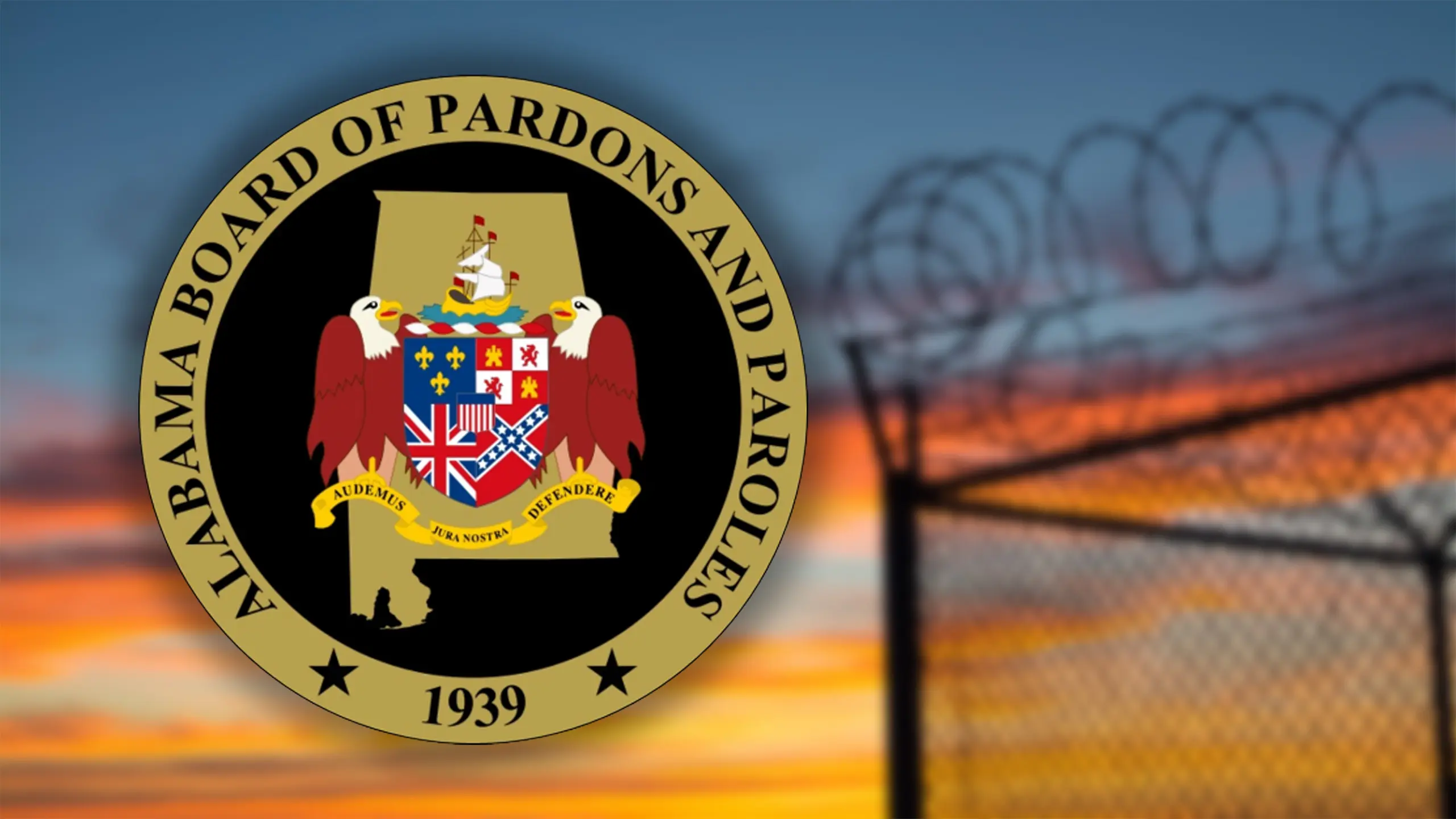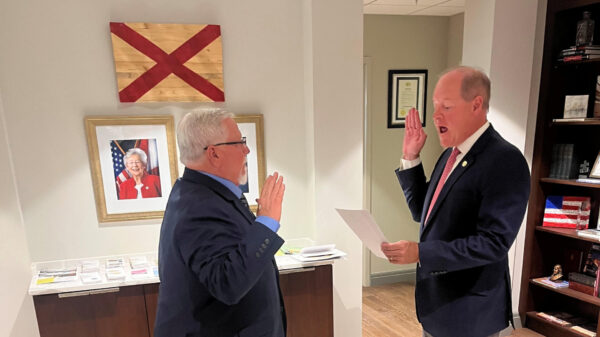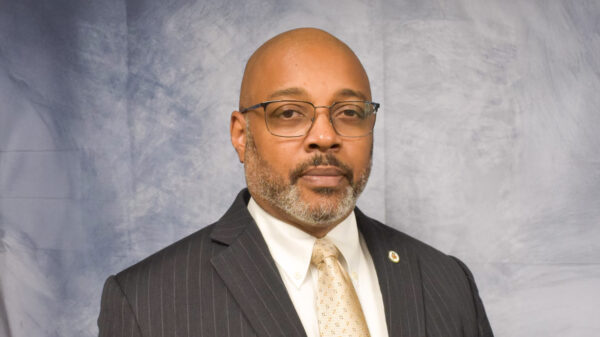The Alabama Board of Pardons and Paroles will hold 59 parole hearings and 30 pardon hearings this week, from Tuesday, July 15, to Thursday, July 17.
The hearings could be the first attended by the board’s newly-appointed chair, Hal Nash, whom Governor Kay Ivey chose to replace former-Chair Leigh Gwathney after her term ended last week. Gwathney’s tenure on the three-member board was marked by exceptionally low parole grant rates, which drew strong criticism from state lawmakers and criminal justice advocates alike.
The Board of Pardons and Paroles held hearings on July 8 and 9 following Nash’s appointment, but the new chair did not attend. During those two hearings, 32.4 percent of parole requests were granted, a substantial increase from June’s monthly grant rate of 18.1 percent.
The board granted parole at a rate of 18 percent during May as well, while April’s grant rate of 15 percent marked the board’s lowest monthly grant rate since November 2023. As of May, the board’s year-to-date grant rate for fiscal year 2025 stands at 21 percent. That rate is drastically lower than the recommended parole grant rate of 79 percent listed in the board’s own guidelines.
Recently, state legislators on both sides of the political aisle have criticized the board’s low grant rates and their failure to adhere to their own guidelines.
During the 2025 legislative session, state Sen. Clyde Chambliss, R-Prattville, who chairs the Legislative Joint Prison Oversight Committee, introduced legislation that would have restructured the ABPP. Chambliss’ legislation would have expanded the board from three members to five, removed the power to appoint the board’s chair from the governor (instead having the board itself appoint the chair from among its own members), and required Senate confirmation before board members could begin serving their terms. Additionally, Chambliss’ bill would have created a set timeline for future parole considerations when the board denies parole to an incarcerated person based on their original sentence.
While Chambliss failed to pass his bill into law before the end of the session, he did succeed in adding an amendment to the 2026 General Fund budget which makes funding for the ABPP conditional on drafting new parole guidelines.
In May, the board published its proposed guideline updates in accordance with that amendment. However, legislators, advocates and several criminal justice reform organizations have highlighted that the proposed guidelines appear more focused on justifying the board’s exceedingly low grant rates than on increasing grant rates through a reemphasis on rehabilitation.
While the proposed guidelines would take negative disciplinary infractions into account when determining an individual’s parole, they would not take into account positive behavior or the lack of any such infractions. Risk assessments from the Alabama Department of Corrections would also fail to be considered under the new guidelines.
According to the Alabama Reflector, the public comment period for the proposed guidelines “will last for the next few weeks at which point a legislator can request that the Legislative Council review the proposed guidelines and can either accept, amend or reject them.”
With both a new chair at the helm and an updated set of guidelines on the way, the Alabama Board of Pardons and Paroles is currently experiencing a period of substantial change. However, whether parole grant rates will actually experience a notable, lasting increase as a result of that change has yet to be seen.



















































